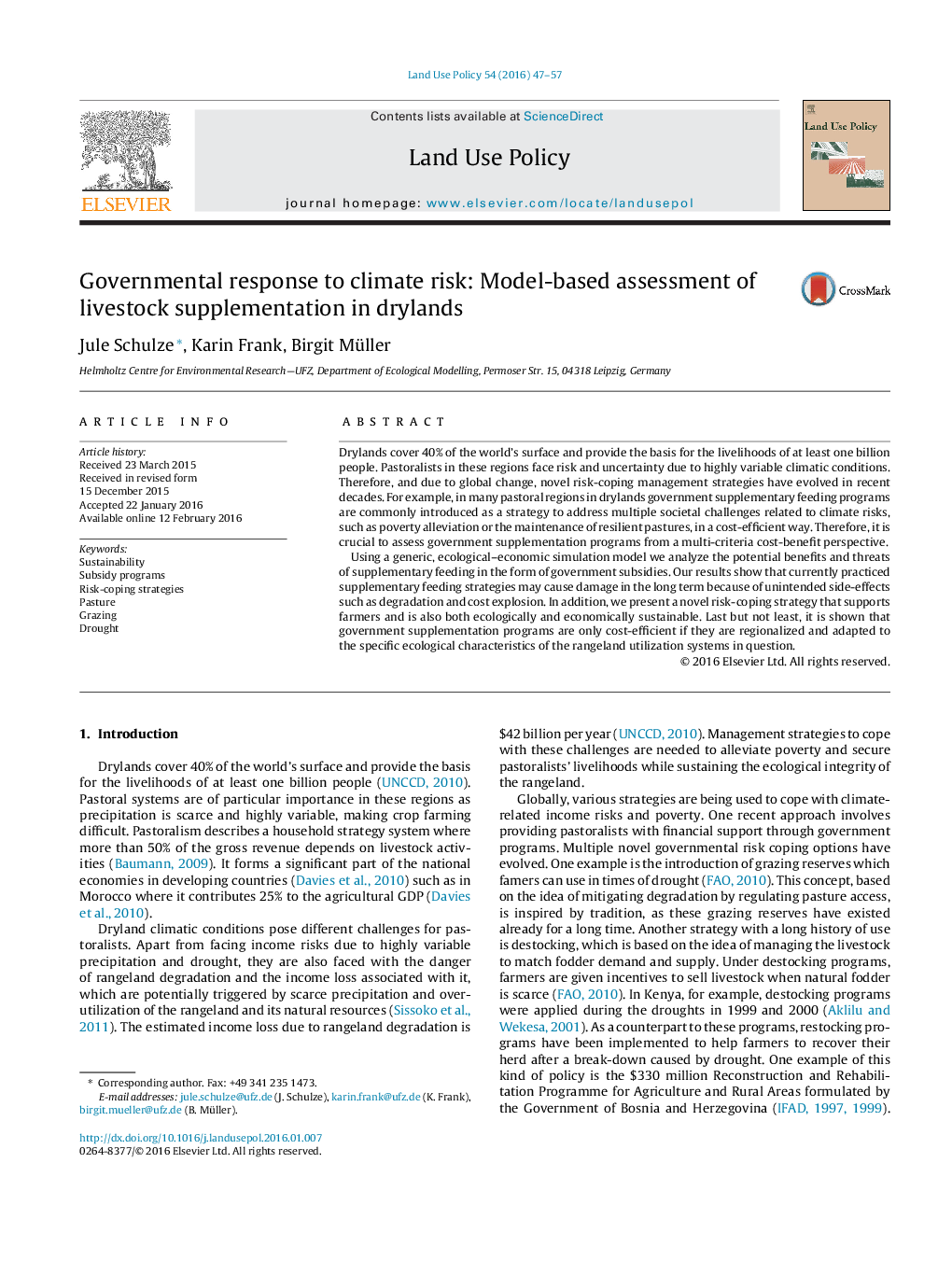| Article ID | Journal | Published Year | Pages | File Type |
|---|---|---|---|---|
| 6547296 | Land Use Policy | 2016 | 11 Pages |
Abstract
Using a generic, ecological-economic simulation model we analyze the potential benefits and threats of supplementary feeding in the form of government subsidies. Our results show that currently practiced supplementary feeding strategies may cause damage in the long term because of unintended side-effects such as degradation and cost explosion. In addition, we present a novel risk-coping strategy that supports farmers and is also both ecologically and economically sustainable. Last but not least, it is shown that government supplementation programs are only cost-efficient if they are regionalized and adapted to the specific ecological characteristics of the rangeland utilization systems in question.
Keywords
Related Topics
Life Sciences
Agricultural and Biological Sciences
Forestry
Authors
Jule Schulze, Karin Frank, Birgit Müller,
